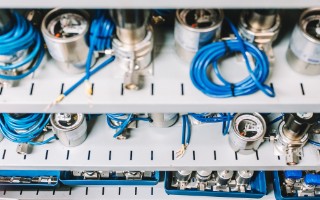Here you will find a selection of our projects.
In our project, we are developing an AI-supported solution for the non-destructive detection of defects in light metal castings, in particular car tyre rims. While conventional quality assurance systems are based on X-ray images and classic image processing methods, our innovative approach offers the opportunity to work more flexibly and efficiently. This is particularly valuable when specialised personnel are scarce or frequent recalibrations are necessary. Together with Fraunhofer IIS, we are endeavouring to enable precise and automated defect detection.
more info






